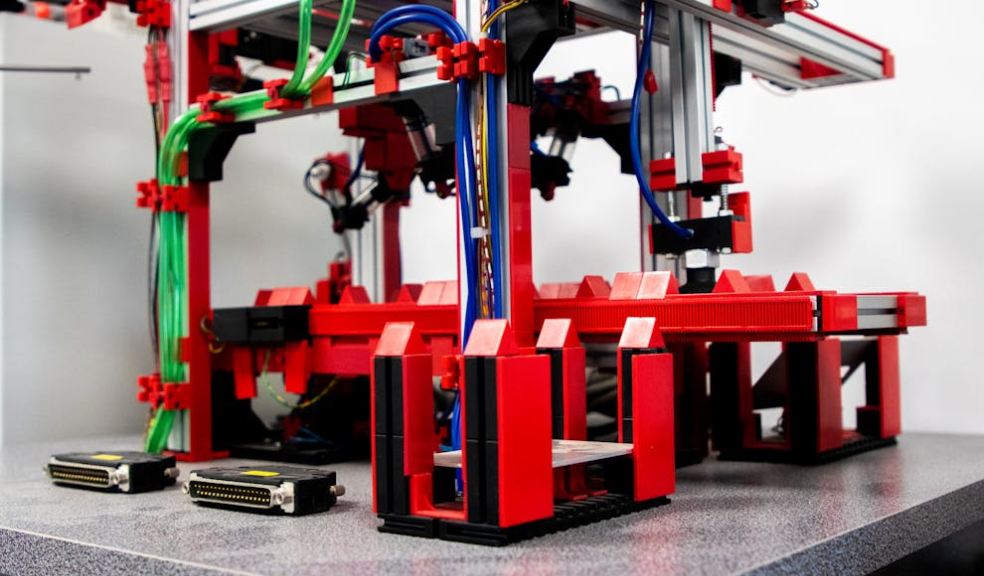
Best Construction Software Solutions Transforming Devon's Building Industry in 2025
Devon's construction sector is experiencing unprecedented growth, from Exeter's ambitious residential developments to Plymouth's waterfront regeneration and Torquay's tourism infrastructure upgrades. As local builders tackle everything from converting historic barns in Dartmoor to constructing modern eco-homes along the coast, they're discovering that digital construction management tools are no longer optional extras—they're essential for competing in today's market. Here's how Devon's forward-thinking contractors are using technology to build better, safer, and more efficiently.
Best Digital Tools for Managing Devon's Unique Construction Challenges
Devon presents distinctive construction challenges that require sophisticated management approaches. The county's diverse geography—from coastal erosion zones to moorland conservation areas—demands careful planning and documentation. Weather patterns that can shift from sunshine to storms within hours require flexible scheduling systems. The mix of historic preservation work and modern development needs contractors who can manage vastly different project requirements simultaneously.
Local contractors are finding that https://www.boxcore.com/ help navigate these complexities more effectively than traditional paper-based methods. When working on a Grade II listed building in Totnes whilst simultaneously managing a new-build project in Newton Abbot, having all documentation, schedules, and compliance records in one digital system proves invaluable.
The seasonal nature of Devon's economy adds another layer of complexity. Construction work often needs to avoid peak tourist seasons in coastal areas, compress schedules during favourable weather windows, and coordinate with agricultural calendars in rural regions. Digital scheduling and resource management tools help contractors optimise these constraints whilst maintaining profitability.
Planning permissions in Devon's various protected areas—from Areas of Outstanding Natural Beauty to coastal conservation zones—require meticulous documentation. Digital systems that maintain comprehensive audit trails and can instantly produce required documentation have become essential for navigating the planning process efficiently.
Best Practices for Construction Safety Management in the Southwest
Safety management takes on particular importance in Devon's varied terrain and weather conditions. From scaffolding on clifftop properties to excavations in areas with historic mining activity, local contractors face unique hazards requiring careful management. The Southwest's construction sector has embraced digital safety systems as a way to maintain high standards whilst improving efficiency.
Devon County Council's focus on construction safety, particularly on public projects, has raised expectations across the industry. Contractors bidding for council work increasingly need to demonstrate sophisticated safety management capabilities. Those using digital safety management systems find themselves better positioned to win these contracts.
Also read: https://www.boxcore.com/general-contractors/
The region's skills shortage—particularly acute in rural Devon—makes efficient worker management crucial. Digital systems that streamline induction processes, track certifications, and manage training records help contractors make the most of available workforce resources. This efficiency becomes particularly important when bringing in specialist trades from Bristol, Cardiff, or further afield.
Weather-related safety concerns feature prominently in Devon construction. Digital platforms that integrate weather monitoring with safety protocols help sites prepare for Atlantic storms, manage work during high winds, and document weather-related delays for insurance and contract purposes. This proactive approach to weather management has prevented numerous incidents and project delays.
Best Software Features for Small to Medium Devon Builders
Devon's construction industry consists primarily of small to medium enterprises (SMEs) rather than national giants. These local firms need technology solutions that provide enterprise-level capabilities without enterprise-level complexity or cost. The most successful digital adoptions in Devon share certain characteristics tailored to SME needs.
Scalability proves essential for growing Devon construction firms. Systems that work equally well for a two-person renovation team or a 50-person commercial project allow companies to grow without changing platforms. This consistency reduces training costs and maintains operational efficiency during expansion periods.
Mobile accessibility is non-negotiable for Devon contractors who might start their day at a site in Barnstaple and finish at another in Exmouth. Cloud-based systems accessible from any device ensure that project information remains available regardless of location. This mobility particularly benefits contractors managing multiple small projects across the county.
Integration with local supply chains streamlines operations significantly. Devon builders often work with the same regional suppliers, subcontractors, and specialist trades repeatedly. boxcore that maintain databases of local contacts, track supplier performance, and automate routine communications save considerable time whilst strengthening business relationships.
Cost-effectiveness remains paramount for SMEs operating on tight margins. The best solutions for Devon builders provide comprehensive functionality at prices that make sense for smaller operations. Many contractors report that efficiency gains and reduced administrative costs provide payback within months, making digital adoption financially sensible even for smaller firms.
Best Ways Technology Supports Devon's Sustainable Building Goals
Devon's commitment to environmental sustainability, reinforced by both council policies and consumer demand, requires construction approaches that minimise environmental impact. Digital tools play an increasingly important role in achieving these sustainability goals whilst maintaining commercial viability.
Waste reduction through better planning and material management becomes achievable with digital systems. Accurate quantity takeoffs, just-in-time delivery scheduling, and waste tracking help Devon contractors reduce landfill contributions whilst saving money. Several Exeter contractors report reducing waste by 20-30% through better digital planning.
Energy efficiency monitoring during construction helps meet increasingly stringent building regulations. Digital tools that track energy use, monitor insulation installation, and document compliance with energy standards ensure projects meet both regulatory requirements and client expectations for sustainable buildings.
Carbon footprint calculations, increasingly requested by environmentally conscious clients, become manageable with digital tracking. From material sourcing to equipment use, digital systems help contractors measure and report on environmental impacts. This capability particularly matters for contractors working on public sector projects where sustainability metrics influence tender evaluations.
Local sourcing initiatives benefit from digital supply chain management. Systems that track material origins, compare local versus distant suppliers, and calculate transportation emissions help contractors make informed decisions supporting Devon's local economy whilst reducing environmental impact.
Best Investment Strategies for Digital Construction Tools
For Devon construction companies considering digital transformation, strategic implementation determines success more than technology selection. The most successful local adoptions follow patterns that minimise disruption whilst maximising benefit realisation.
Starting with core functions that provide immediate value—such as digital timesheets or safety inductions—builds confidence and demonstrates return on investment quickly. Once teams see time savings and efficiency gains from basic features, enthusiasm for broader digital adoption grows naturally.
Training approaches tailored to Devon's workforce demographics prove essential. With many experienced tradespeople who might be less comfortable with technology, patient, practical training that emphasises benefits rather than features encourages adoption. Several Plymouth contractors report success with peer mentoring programmes where younger workers help older colleagues adapt to digital tools.
Phased rollouts across projects prevent overwhelming teams with change. Beginning with single projects or specific processes allows refinement before broader implementation. This measured approach has helped numerous Devon contractors successfully transform operations without disrupting ongoing projects.
Partnership with technology providers who understand construction realities matters significantly. Generic business software rarely addresses construction's specific needs. Platforms designed by construction professionals for construction professionals provide better fit and require less customisation.
Best Returns on Digital Investment for Regional Contractors
The financial case for digital construction management becomes compelling when considering multiple benefit streams. Devon contractors using comprehensive digital platforms report various returns that justify investment many times over.
Insurance premium reductions of 10-15% are increasingly common for contractors demonstrating digital safety management capabilities. For a medium-sized Devon contractor, this might represent £10,000-20,000 annual savings—often exceeding total technology costs.
Productivity improvements through reduced administrative burden free skilled workers for revenue-generating activities. Contractors report saving 5-10 hours weekly on paperwork, time that can be redirected to additional projects or improved work-life balance.
Competitive advantages in tendering become increasingly important as clients expect digital capabilities. Devon contractors with sophisticated digital systems report higher success rates in competitive bids, particularly for public sector and large commercial projects.
Quality improvements from better documentation and communication reduce callbacks and warranty claims. This enhancement of reputation in Devon's close-knit construction community generates referrals and repeat business worth far more than technology investments.
Talent attraction improves when companies offer modern working methods. Younger workers entering Devon's construction industry expect digital tools and may choose employers based on technological sophistication. This advantage helps address the region's construction skills shortage.
Looking Forward: Devon Construction's Digital Future
As Devon continues developing—from the Exeter and East Devon Enterprise Zone to Plymouth's Oceansgate marine industries park—construction companies equipped with digital tools will capture disproportionate shares of growth. The transformation from paper-based to digital operations isn't just about efficiency; it's about positioning for future opportunities.
Climate change adaptation, increasingly important for Devon's coastal and flood-prone areas, requires sophisticated project management. Digital tools that model environmental risks, track resilience measures, and document adaptation strategies will become essential for responsible development.
The region's housing crisis demands faster, more efficient construction without compromising quality or safety. Digital tools that streamline processes, improve coordination, and reduce delays help address housing needs whilst maintaining standards.
Devon's construction industry stands at a crossroads. Companies embracing digital transformation position themselves for growth, efficiency, and sustainability. Those maintaining traditional paper-based methods risk falling behind as clients, workers, and regulators increasingly expect digital sophistication. For Devon's ambitious, community-focused builders, the path forward is clear: invest in digital tools that support better building for Devon's future.











